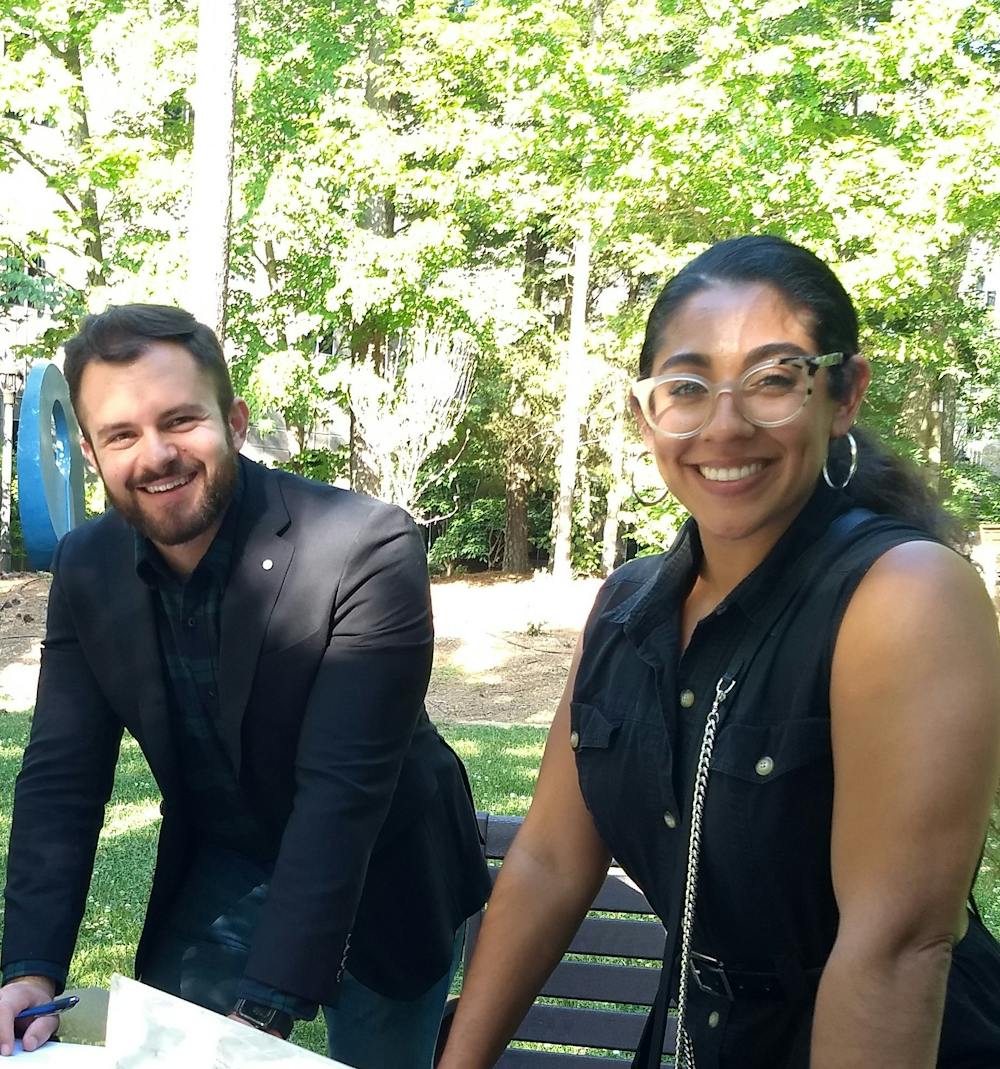A legal team including Duke Law’s Health Justice Clinic successfully advocated for Blue Cross Blue Shield of North Carolina to cover gender-affirming facial feminization surgeries for transgender individuals.
The team also included the Transgender Legal Defense & Education Fund and the private law firms Pillsbury Winthrop Shaw Pittman and Harris, Wiltshire & Grannis. It advocated for the procedures to be reclassified by BCBSNC as medically necessary rather than cosmetic.
The group represented Equality North Carolina and the LGBTQ Center of Durham, two organizations that use Blue Cross for their employee health plan and wanted to expand coverage to include facial feminization surgery.
Though no litigation occurred, the policy change did not occur until after the group began their advocacy. Now, two clients represented in the appeals have access to the gender-affirming surgery.
Kathryn Vandegrift is one of these clients. When first denied access to gender-affirming care, her initial reaction was to reach out for legal help.
“I just didn’t know what else to do. This is clearly something that is not in line with the science. It’s not in line with our best understanding of laws,” Vandegrift said.
According to a study published this spring, trans individuals who underwent gender-affirming surgery had “significantly lower odds of past-month psychological distress, past-year tobacco smoking, and past-year suicidal ideation” compared with transgender people who did not, demonstrating an association between gender-affirming surgery and improved mental health outcomes.
As part of the legal team on this case, Duke Law students in the clinic drafted appeals, conducted interviews with the clients and wrote memos on how BCBSNC policy was not in accordance with the current standards of care. TLDEF brought in co-counsel and the legal research and strategy.
Edward Gonzales, a third-year Law School student and one of seven students who worked on the team, emphasized the collaborative nature of the case.
“Seeing these different organizations come together and using their different resources for this common cause was really humbling. It just made me feel like I was part of something bigger than myself,” Gonzales said.
Noah Lewis, director of the Trans Health Project at TLDEF, said that the initiative for change came from clients like Vandegrift.
“They could have just given up,” Lewis said. “It takes individuals coming forward and asserting their rights to actually get these changes implemented.
Since the change in policy, Vandegrift has undergone surgery and is currently in recovery.
“The way that my dysphoria was, my preoccupation with my face kind of eclipsed anything else and was debilitating on a daily basis,” she said. “It very much does feel like a chapter ended here and a new one began.”
Allison Rice, clinical professor of law and the director of the Health Justice Clinic, said that the clinic was initially devoted to serving HIV patients. It dealt with issues including disability benefits, estate planning, breaches of confidentiality, wills and discrimination based on HIV. The clinic, which was founded in 1996, expanded its work to include cancer patients in 2015.
Over the years, the clinic’s commitment to serving HIV patients meant that it worked with a lot of LGBTQ+ clients, including transgender clients seeking legal help with name changes.The clinic eventually expanded to work with non-HIV positive clients, Rice said. The partnership with TLDEF emerged from an interest in expanding insurance coverage options.
“I know all of those students will be better lawyers for having been involved in this project,” Rice said. “I think it's really great for students to be able to have a chance to see...what an impact even small organizations can have nationally by being very careful about the projects they choose, and choosing projects that have a lot of impact and will influence other cases and other situations.”
But the fight is not over.
Though the policy change covers a lot, Vandegrift said, it still has unnecessary exclusions. For some individuals, the prices of surgery are still steep and inaccessible.
“We got this today, but tomorrow, there could be legislation that takes it all away,” Gonzales said. “The fight is never won. We all need to come together as a community, especially the LGBT+ community, and fight not just for our rights of our cis members, but also our trans members, our queer members, non-binary members,” he said.
“Transgender health care is health care and health care is a human right,” Vandegrift said. “You shouldn't be denied access to medical care that you require.”
Get The Chronicle straight to your inbox
Signup for our weekly newsletter. Cancel at any time.

Preetha Ramachandran is a Trinity senior and diversity, equity and inclusion coordinator for The Chronicle's 118th volume. She was previously senior editor for Volume 117.

